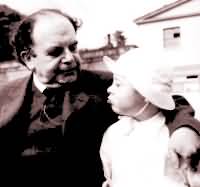
Home
About Us
The Community
Co-Worker
Information
& Vacancies
Co-Worker Training
Co-Workers
with
Qualifications
Children's
Admissions
Camphill News
Location
Contact
Links

Since its beginnings in 1940, the Camphill Movement has been an ongoing and evolving experiment in community building. As trends in Western society have tended to isolate and alienate the individual, and direct attention away from the "inner man" towards an increasing emphasis upon the material elements of life, various impulses have appeared which have attempted, in one way or another, to provide a balance. The Camphill Movement is one such impulse, since, although every member of each community is encouraged to develop his or her individual potential to the full, the responsibility of each member for all the others is vitally important. 
In Northern Ireland there are now four centres. At Glencraig near Holywood in Co. Down, opened in 1954, at Mourne Grange near Kilkeel in Co Down, opened in 1971, at Clanabogan near Omagh in Co. Tyrone, which began in 1984, and more recently a coffee shop, bakery and shop in the centre of Holywood town which opened in 1997. There are now around 100 Camphill centres in almost 20 different countries all over the world. For further information on other sites please click on the links in the previous paragraph or see our Contact page. |

Karl König (1902-1966) was an Austrian doctor, with significant experience of working with children with learning disabilities in a residential setting. He and a group of younger friends and supporters left Austria as refugees in 1938. By 1940 they had made their ways to Scotland, where, inspired by the insights of Rudolf Steiner (1861-1925) into the spiritual nature of the human being, they began to live and work with children with special needs, with an emphasis on community building. Dr König felt that, through communities, new ways of healing might be introduced into society to counter some of the more harmful aspects of modern life. Thus began what was later to become known as the Camphill Movement. From the beginning, Camphill Communities have been Christian, but non-denominational, and still endeavour to uphold Christian values. The sacramental services of the Christian Community (an independent movement of religious renewal) have a particular place in each centre, but attendance at any, or no, place of worship is a matter of individual choice. The celebration of the seasonal festivals, particularly Christmas, Easter, Whitsun, St. John's and Michaelmas, is important, and provides a strong and natural rhythm to the year. Talks, plays, concerts and other artistic activities and social gatherings mark these celebrations, but are not confined to festival times, and take place throughout the whole year. A strong and active cultural life is aimed for, both from within the Communities and by joining with activities in the surrounding villages, towns and cities. The "staff" or "carers" are known as co-workers, as an indication of the desire to break down the barrier between "service-provider" and "client". Children and adults with special needs attend either school or a workplace, and live together with the co-workers, young and old, single and with families, in a way that uniquely provides helper and helped with the opportunity to learn from each other.
The Communities make every effort to be non-hierarchical in structure. Individuals are encouraged to contribute, and accept increasing responsibility, depending on age, experience and ability. Whilst many Communities employ salaried staff who live in the locality, most co-workers living in the Communities within the UK or Ireland do not receive direct remuneration for the work they do. Rather, an attempt is made to meet each person's needs according to individual circumstances, since age, experience nor responsibility are necessarily relevant to an assessment of daily needs. The Camphill Communities have had to be ready to evolve in order to meet the ever-changing needs and demands of society. |
|
Co-Workers with Qualifications | Children's Admissions | Camphill News | Location | Contact | Links |
